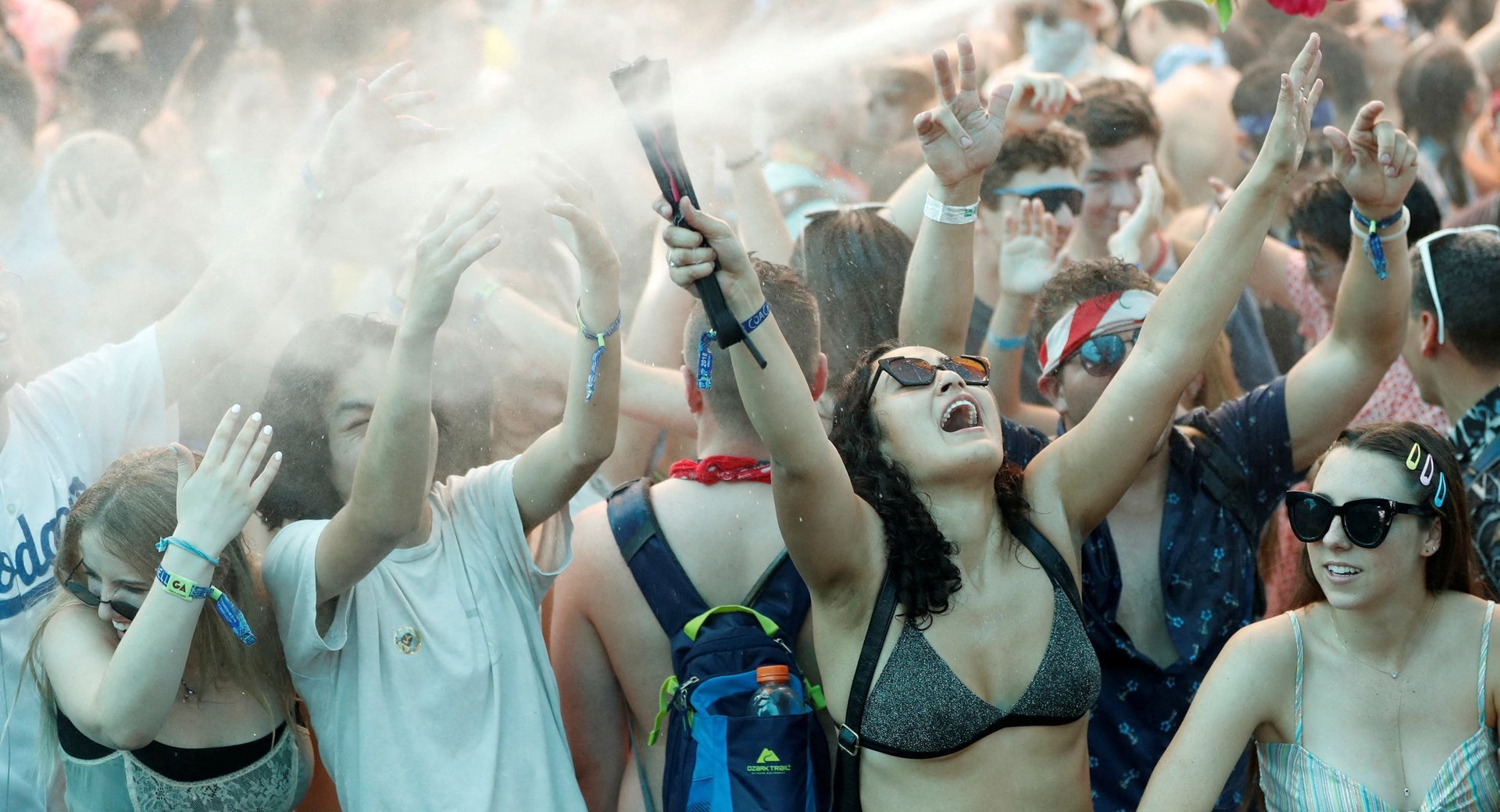Coachella won’t require masks or covid vaccines when it returns in April
For two years, California’s Coachella music festival has been on hiatus. It’s set to return to the desert town of Indio on April 17 without any covid restrictions at all, according to an update published on the festival’s website this week.


For two years, California’s Coachella music festival has been on hiatus. It’s set to return to the desert town of Indio on April 17 without any covid restrictions at all, according to an update published on the festival’s website this week.
“In accordance with local guidelines, there will be no vaccination, testing or masking requirements at Coachella 2022,” the update reads. Proof of vaccination is recommended, but not required, at large outdoor events in California. With covid cases in decline, the state is also dropping indoor mask mandates starting today (Feb. 16).
Coachella and Stagecoach dropping covid-19 restrictions
Organizers for Coachella and its country-music sister festival, Stagecoach, announced back in October they would require either proof of vaccination or a negative covid test for entry. In the three months since, daily coronavirus cases in the county where the festivals take place rose to record highs before dropping considerably.
Coachella organizers stressed that entry requirements may change at any time at the discretion of federal, state, and local authorities, and even artists or promoters. Around 125,000 people are expected to attend this year’s Coachella festival, and Billie Eilish, Harry Styles, and Kanye West are in the lineup. Both Eilish and Styles are currently touring, and have been requiring proof of vaccination, testing, and masks from show attendees. It’s unclear if West is vaccinated.
Festival warns attendees of ‘inherent’ risk
Concerts in the US have been back on since last summer, but Coachella is one of the first major festivals to drop covid requirements entirely.
Nearly 400,000 concert-goers attended Chicago’s Lollapalooza last July, but were required to present either proof of vaccination or a negative covid test. Just 203 reported cases were linked to the festival. Other festivals planned for the coming months, such as Jazz & Heritage in New Orleans and South by Southwest in Austin, are keeping covid requirements in place for now.
Coachella organizers made clear there is an “inherent and elevated risk” of contracting covid-19 at a public event like this, and festival attendees “voluntarily assume all risks related to exposure to covid-19.”